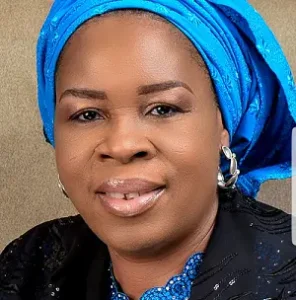
If the Economic and Financial Crimes Commission (EFCC) and ex-Governor Yahaya Bello tango were a contest, the latter would have won in a knockout blow that sent the anti-corruption agency to the canvas, hitting so badly that it may never recover, at least not soon. However, while the EFCC reels from this misadventure, the joke is on the nation and all who had invested emotionally in the agency, hoping it would stamp out or at least reduce corruption in the public sector and give Nigeria a better global image. This latest debacle has further exposed the current government’s inability or reluctance to tackle corruption headlong.
How else can one explain what transpired between the former governor of Kogi state and the EFCC last week? Shortly after his tenure ended in January this year, the EFCC, which had a running battle with the governor while in office, invited him. However, Yahaya Bello’s pushback based on a subsisting court order prevailed, and the EFCC fought back by declaring him wanted. Six months later, the ex-governor showed up at the EFCC headquarters.
What happened between the EFCC representatives and Yahaya Bello in the daytime looked like a friendly chat. The agency probably felt dazed by Yahaya Bello’s seeming apparition, only to disturb his peace and that of his neighbours in Asokoro district at night. Like thieves in the night, the EFCC operatives surrounded and shot many times around the Kogi lodge (in search of Bello) and left, failing to either arrest or catch their “wanted” ex-governor. The EFCC had earlier levelled a 19-count charge against Yahaya Bello and accused him and his nephew, Ali Bello, the Chief of Staff to current Governor Usman Ahmed Ododo, of money laundering up to the tune of N80.2 billion belonging to Kogi state. When the ex-governor eventually and willingly surrendered, the EFCC looked the other way.
As an institution, the EFCC has failed Nigeria and abdicated its responsibility. It wasted material and human resources and has nothing to show for it. What a shame! What an embarrassment. EFCC’s inefficiency has proved Yahaya Bello’s assertion of witch-hunt, political vendetta, and persecution rather than the graft war it was established to fight. You can hardly fault that line of thought in this case.
For most people accused of corrupt practices, especially the political class, they often answer the EFCC’s call to make their statements and are left off the hook to go and sin no more. At that stage, the battle moves to the courts where the EFCC prosecutors lose many of their cases after their initial bravado, for lack of diligent prosecution and improper investigation before rushing to court. Many so affected finally walk out of the EFCC legal trap free. But with the Yahaya Bello case, their lousy job has become more apparent.
Little did we know that a time would come when EFCC would become only a toothless bulldog, unable to even bark at all, making people wonder whether EFCC’s golden era is over. Their modus operandi now resembles “persecution and not proper prosecution” that could lead to conviction. Under its current chairman, Olanipekun Olukoyede, EFCC is all hot air, drama, sensation, and no substance.
Recall that the Chairman, while still on the Yahaya Bello case, inadvertently admitted bias and favouritism when he disclosed that he appealed to Yahaya Bello to come through his door/gate instead of normal routes, perhaps to avoid embarrassment; another proof of EFCC’s selective investigation of corrupt practices, chasing shadows and fighting needless political battles instead of financial crimes. The law is there for everyone to obey, not to protect a privileged few.
EFCC takes delight in their Gestapo-style fight against alleged yahoo boys and financially endowed young adults and students, and media trials of high-profile individuals. There are numerous cases of EFCC operatives compromising with criminals or turning into criminals themselves by extorting money from yahoo boys, real or imagined. Such bad eggs should be flushed out, but with a not-so-proactive leadership, I doubt if the EFCC has the moral weapon to punish their erring staff.
For their indiscretion over the Yahaya Bello fiasco, the Olukoyede-led EFCC has become a laughingstock scorned by all. On a lighter note, was EFCC bewitched by Yahaya Bello’s prowess? Because quite frankly, this case does not make sense.
Olukoyede should worry about his place in history and be wary of his legacy, not ending in ignominy like some of his predecessors. To fight corruption is difficult and requires stealth, courage, competence, and character. Olukoyede should combine all these qualities.
The drama and theatrics at play over some of the cases before the EFCC in recent times are laughable. As a foremost institution globally recognized, it should do more than the circus show it has become. Beneath the comic relief it sometimes provides are thought-provoking concerns and worries about its future and fate as an anti-graft institution. Is this the end of the road for EFCC? Should we just move on and legitimize corruption and financial infractions as part of our existential reality?
One doesn’t have to be a fan of Yahaya Bello to ask what is going on. Are people just exploiting the agency’s institutional weaknesses, or are there compromises here and there? Bungling the Yahaya Bello case has left everyone confused about EFCC’s motives, intentions, and professionalism. These are ethical questions that will unravel in the course of time.
* Zainab Suleiman Okino, a syndicated columnist, chairs Blueprint Editorial Board. She can be reached via: zainabokino@gmail.com
